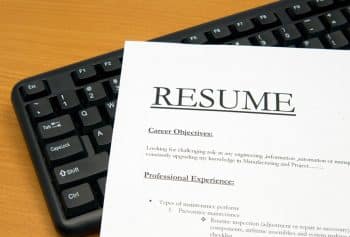Home » Spotlight » US likely to authorize COVID-19 booster shots
US likely to authorize COVID-19 booster shots
https://www.whatjobs.com/news/what-news-topical/us-likely-to-authorize-covid-19-booster-shots

By Nagasunder in Spotlight, posted August 20, 2021
After months of fighting to persuade Americans to get the COVID-19 vaccine, US health officials may soon face a new challenge: persuading people who have been vaccinated to get a booster vaccine for protection longer because delta variants cause infections to increase again.
According to two Associated Press persons who spoke on the condition of anonymity to discuss internal deliberations, as early as this week, US health authorities are expected to recommend additional doses of the vaccine to all Americans eight months after receiving the second injection.
This means that the largest vaccination campaign in US history will become more widespread. The move was driven by preliminary evidence that highly infectious mutations and vaccine protection began to weaken within a few months.
The new urgency of US officials reflects how quickly the variant brought the country down. On July 4, President Joe Biden announced that the country had declared independence from the virus. But since then, the number of infections, hospitalizations, and deaths across the country has increased, and emergency rooms in parts of the south and west have been overwhelmed.
When Pfizer announced that it planned to seek approval for the booster in July, US officials responded that it was too early to judge whether it was necessary. Experts worry that a new movement calling for reinforcements will hinder the ongoing movement to win the support of tens of millions of Americans who are skeptical or hesitant about the first attempt.
“We have to really make sure that while we’re spending a lot of time and effort on third doses that we don’t undermine our campaign for first vaccinations,” Lawrence Gostin, a public health specialist at Georgetown University, said Tuesday. “That’s truly the existential crisis in the United States.”
Gostin warned that requesting the third dose might discourage those who were initially skeptical about the effectiveness of the injection.
The extensive booster injections will begin only after the U.S. Food and Drug Administration officially approved the vaccine. These vaccines are currently distributed under the so-called emergency use authorization. Pfizer vaccine is expected to receive full approval in the next few weeks.
Last week, US health officials recommended boosters to people with weakened immune systems, such as cancer patients and organ transplant recipients.
The director of the National Institutes of Health, Dr. Francis Collins, said on Sunday that the United States might decide within the next two weeks whether to provide booster vaccines to other Americans this fall.
The first batch of people to receive the vaccine were medical staff, nursing home residents, and other elderly Americans. They were among the first to receive the vaccine after obtaining the vaccine license in December last year.
According to the Centers for Disease Control and Prevention, more than 198 million Americans have received at least one dose of the COVID-19 vaccine, 70% of eligible people. Among Americans 12 years and older, less than 60% are fully vaccinated.
The vaccination campaign has been slower than the Biden administration expected. At the same time, the variant is actively spreading in unvaccinated communities and is causing more and more "progressive infections" in fully vaccinated people.
Pfizer and its partner BioNTech announced that they had submitted data to the FDA to support the authorization to provide the booster vaccine to the public. Pfizer said that a small study showed that people who received the third dose of the vaccine had higher antibodies against various versions of the coronavirus (including delta variants). The company is conducting a larger study.
Americans who received the first dose of Pfizer vaccine, mainly medical staff, and nursing home residents, have been close to the eight-month mark since the second dose of vaccine.
“There is a concern that the vaccine may start to wane in its effectiveness,” the NIH’s Collins said. “And delta is a nasty one for us to try to deal with. The combination of those two means we may need boosters, maybe beginning first with health care providers, as well as people in nursing homes, and then gradually moving forward” with others.
Global health officials, including the World Health Organization, have called on wealthier and more-vaccinated countries to hold off on booster shots to ensure the supply of first doses for people in poor corners of the world.
Source: Escanaba Daily Press










